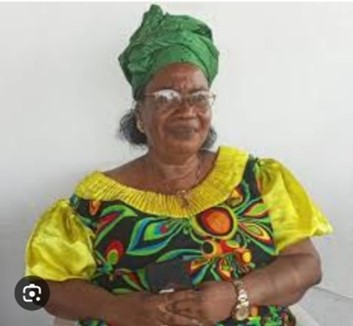The Doe family is grappling with mounting unease and frustration over the Liberian government’s perceived indifference towards the burial arrangements of former First Lady, Nancy B. Doe, who passed away on May 21, 2025. Despite formally notifying the Office of President Joseph Nyuma Boakai on May 23rd, outlining their intention to lay Madam Doe to rest on June 28th, the family has been met with an unsettling silence from the government. This lack of official response, now stretching beyond eleven days, has ignited concerns and prompted the family to consider public appeals to draw attention to the situation. The perceived inaction by the state stands in stark contrast to the respect and recognition typically accorded to individuals who held such prominent positions, particularly former first ladies.
The family’s anxiety stems from the government’s failure to acknowledge their notification and initiate the customary protocols surrounding the burial of a former first lady. These protocols often involve state participation in funeral arrangements, including logistical support, financial assistance, and public tributes. The absence of any visible engagement from the government has left the family feeling unsupported and disregarded, raising questions about the state’s commitment to honoring individuals who served the nation. The delay also creates practical challenges for the family as they strive to finalize funeral arrangements within the stipulated timeframe. This uncertainty further compounds their grief and adds an unnecessary layer of burden during an already difficult period.
The family’s concerns are heightened by the symbolic significance of Madam Doe’s role as former First Lady. Serving from 1980 to 1990 alongside her husband, President Samuel K. Doe, she held a position of national prominence and was actively involved in charitable work and advocacy for women and children. Her tenure as First Lady coincided with a tumultuous period in Liberia’s history, and her passing represents the closing of a significant chapter. The government’s apparent disengagement is viewed not only as a slight to the Doe family but also as a disregard for Madam Doe’s contributions to the nation and the office she once held.
While Vice President Jeremiah Kpan Koung reportedly met with the family and offered a personal contribution of US$2,000 towards the funeral expenses, this gesture is considered inadequate by many within the family and the wider public. They argue that the amount pales in comparison to the financial support typically allocated for the burial of former high-ranking officials, particularly given Madam Doe’s stature and the decade she spent as First Lady. The perceived inadequacy of the contribution further fuels the narrative of government indifference and underscores the family’s frustration with the lack of official engagement. This perceived slight amplifies their sense of being overlooked and reinforces the need for a more substantial and respectful response from the state.
The family’s planned media engagement, spearheaded by Veronica Mamie Doe, daughter of the late President Samuel K. Doe and Madam Nancy B. Doe, signifies their determination to hold the government accountable and secure a befitting burial for their mother. By taking their concerns to the public forum, they aim to exert pressure on the administration to acknowledge its oversight and take appropriate action. This proactive approach underscores their commitment to ensuring that their mother receives the respect and honor they believe she deserves.
The government’s silence surrounding the burial arrangements of former First Lady Nancy B. Doe raises troubling questions about the state’s commitment to honoring past leaders and recognizing their contributions to the nation. The family’s concerns, coupled with the public’s perception of the government’s handling of the situation, highlight the importance of establishing clear protocols and procedures for state funerals and ensuring that they are consistently applied, regardless of political affiliations or historical circumstances. The current situation underscores the need for a more proactive and responsive approach from the government in matters of national importance, particularly those involving the passing of individuals who have played significant roles in the nation’s history. A prompt and respectful response would not only alleviate the family’s anxieties but also demonstrate the government’s commitment to upholding the dignity of the office of First Lady and honoring the legacy of those who have held it.














